Breweries range in size from small, family-run businesses to large manufacturing operations that ship their goods worldwide, but one thing that all breweries have in common is the need for a durable, safe flooring system that can withstand the demands of the industry and meet USDA standards. If the facility also has a public tasting room or other area open to the public, various flooring systems in different spaces may be necessary. Function and aesthetics are both critical points to evaluate when choosing a flooring system for a brewery concern, whether for large production or a smaller craft operation.
Why coating concrete slabs is so important
Unsealed concrete slabs are the substrate typically found underlying the flooring used in breweries, wineries, and distilleries. In addition to not meeting USDA guidelines, if the concrete were to be left unsealed, heavy loads and foot traffic would damage it, eventually causing unsightly abrasions and pitting, risking the creation of a potentially uneven, unsafe surface. In addition, unsealed concrete gradually wears, releasing unhealthy “concrete dust” into the air. This can pose a safety concern if inhaled by sensitive employees, and can pose a contamination risk to the product.
Spills are inevitable in a setting that produces beer, wine, or alcoholic spirits, and the porous surface of untreated concrete can quickly absorb liquids, causing unsightly stains and potential sanitation issues, as the inability to thoroughly clean up spills can result in bacteria or mold growth. Sealing the concrete with an epoxy floor coating, urethane mortar or other resinous flooring system can help eliminate concrete dust, improve the floor’s durability, and create a nonporous surface that is simple and economical to maintain, plus able to easily hold up to the power-washing and other cleaning methods performed in brewing and bottling areas.
Coating systems for craft breweries: What’s on your brewery floor matters
USDA compliant brewery flooring
Breweries, wineries, and distilleries all have a responsibility to install flooring that will keep both the product and employees safe. In order for production areas to meet USDA standards, floors must be impervious, smooth, easily cleanable, and be constructed with a proper slope to a floor drain. Slip-resistance is allowed where needed for safety. Epoxy and urethane mortar flooring systems are an ideal proven solution for brewing, fermentation and distillation area floors, as they fulfill these USDA requirements and offer a variety of additional options.
One of the key issues for flooring used in food and beverage production settings is that it be monolithic, devoid of grout lines and other cracks where moisture and debris can gather. Resinous flooring systems’ virtually seamless surface promotes maximum cleanliness and supports the fight against bacteria growth. If bacteria and other pathogens are allowed to flourish, the facility could be forced to pay fines and even halt production. Having the right flooring system in place can go a long way toward preventing these undesirable situations.
Well specified and installed beverage processing floor coatings are also durable enough to withstand incidental exposure to extreme pH ingredients, the movement of heavy machinery, constant foot traffic, rapid changes in temperature, as well as acids, chemicals, and high-pressure washing that can lead to additional surface wear. Today’s best floor coating manufacturers offer customizable flooring solutions to best meet your facility’s needs.
Front of house flooring solutions
While a brewery is primarily a production facility, many also incorporate a tasting room, pub, or other visitor area where members of the public can come in, see the facility, and enjoy some of what the brand has to offer. Cleanliness is critical in front-of-house areas, and a fluid-applied flooring system can provide a nearly seamless, nonporous surface that makes it easy to handle spills and quickly clean the entire space.
In areas where guests visit, aesthetics are an issue of great concern. The flooring system you choose can play a role in overall company and label recognition. Is your brand one that emphasizes natural ingredients, warmth, and comfort? If so, earthy tones that echo the look of hardwood in an easy maintenance, durable resinous surface could be the answer. Metallic epoxy floor coatings can be used to imitate polished or stained concrete, and create a modern ambiance while providing far better durability and performance. Embedding a company logo into the floor can further enhance brand messaging. And with resinous flooring, slip-resistance is completely customizable to your operation’s needs. Whatever color and texture options you choose, a clean, safe floor devoid of unevenness, scratches, and stains is always important in creating the right first impression.
Kendall Youngworth is a Senior Marketing Specialist at Tennant Coatings with more than 10 years’ experience assisting clients across many industries in the selection and installation of optimal concrete flooring for their facilities. Tennant Coatings of Minneapolis, Minnesota, is a leader in flooring experience, knowledge, and expertise.

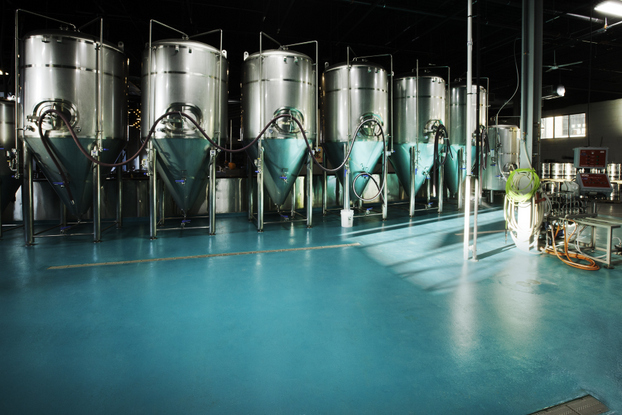
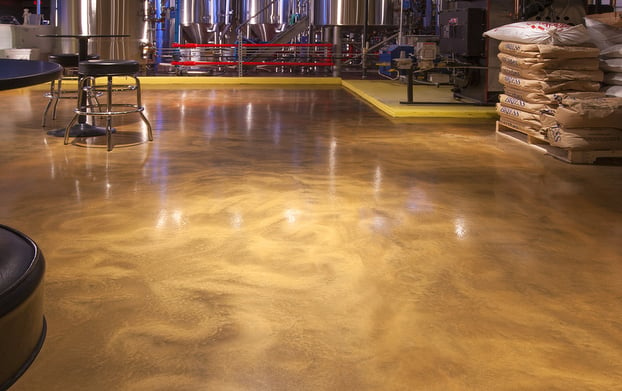
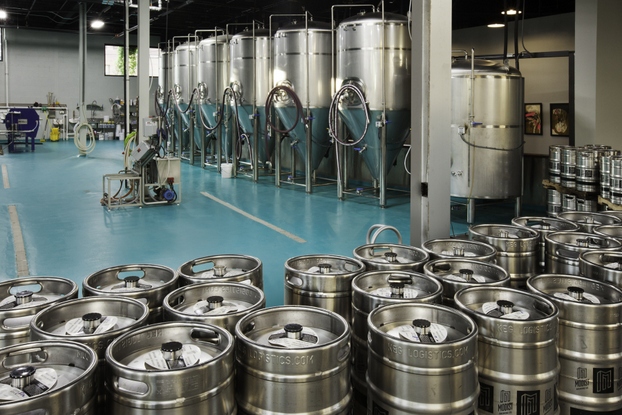
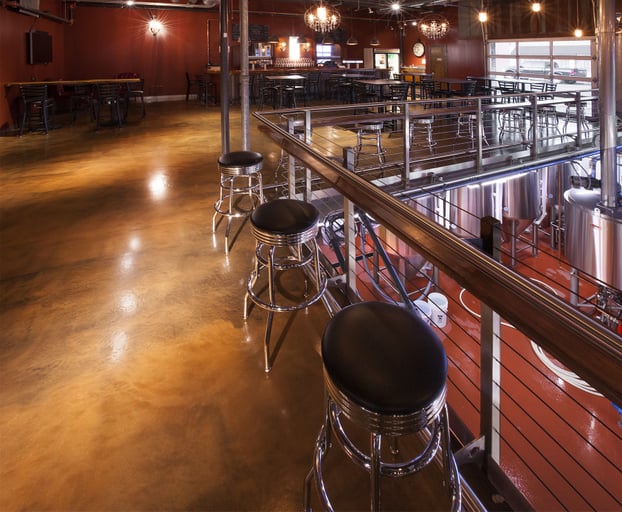
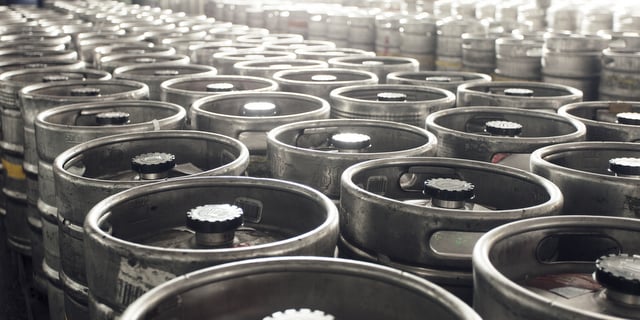
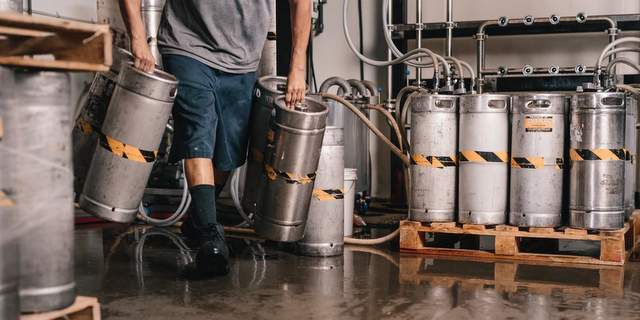
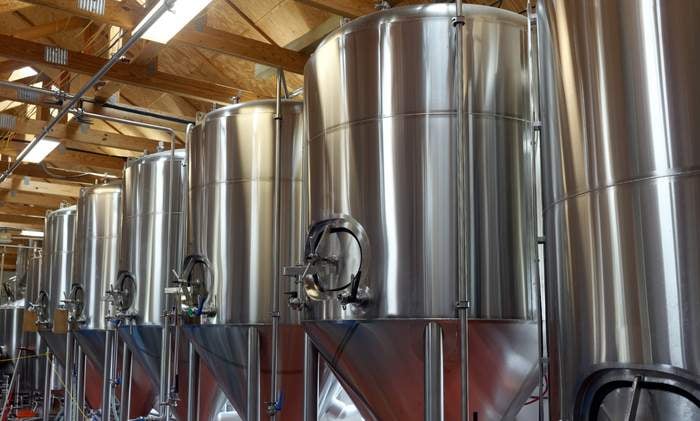
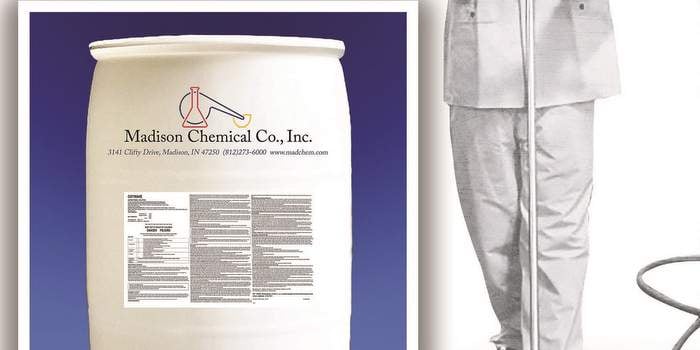
[…] microbreweries to start-up manufacturing businesses, every industrial and commercial premises require high quality […]